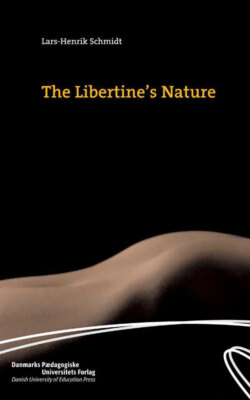Читать книгу The Libertine's Nature - Lars-Henrik Schmidt - Страница 5
На сайте Литреса книга снята с продажи.
Prelude: Sade and I Sade Once Again
ОглавлениеOn the thirteenth of February 1777 the police showed up in the person of assistant commissioner Marais at the Hôtel de Danemark, rue Jacob in Paris. Referring to a royal lettre de cachet, the police arrested a young nobleman and led him to the Vincennes Fortress. The prisoner also had a death sentence hanging over his head. In 1772 a court of justice in Provence had found him guilty of poisoning and sodomy. Though the judgement was later reversed, the prison sentence was not revoked. He was released periodically but then reimprisoned for the libertine writings which were occasioned by the incarceration.
His imprisonment can be seen to mark the commencement of a new element in a body of work that among other things has enriched the world with one of the most remarkable Enlightenment texts by far. Symbolically opening the Terror of the revolutionary Jacobins, “the dictatorship of freedom,” Justine ou les malheurs de la vertu was published in 1791. The book turned out to be published under a pseudonym, and behind the author’s pseudonym was hidden the above-mentioned nobleman: Donatien Alphonse François Marquis de Sade (1740-1814).
From the point of view of literary history this “novel” represents the genre transition from the philosophical fairy tale to the romantic novel. And in Sade’s work it constitutes the center of rotation between Les Cent Vingt Journées from 1785, a system of passions in novelistic drapery, and Juliette ou les prosperités du vice from 1797, a novel with philosophical ambitions.
On the occasion of the 200th anniversary of this epoch-making effort, why not make a bow to Sade and show consideration for him; that is, refrain from turning him over. This time, however, not to the uniformed police but to the mundane literary knowledge police. Today Sade’s concrete libertine behavior does not differentiate him much from many a school boy, but his libertine speculation and knowledge are still inadmissible. Today we lock Sade up inside literature – in the shape his thought had to take according to the circumstances. Sade’s thinking is not present as anything other than epochal literature, as odd literature.
The magic of numbers falls completely within the spirit of Sade. It is noteworthy that he became obsessed with numbers and numerical constructions during the terms of imprisonment that form the sombre background of his work. However, the magic of numbers alone can never be sufficient grounds for giving attention to a body of work. His work deserves attention as a lesson, either because the grasp on it seems fatal or appears to be a tonic for the person who achieves his great health through the contact. For this reason Sade can function as an occasion.
Sade wants transgression; precisely this will to transgression makes him French philosophy’s answer to Nietzsche. Sade has a tendency to transgress the social condition, for only by transgressing it does this condition become apparent. He does not consider himself reduced to Nietzsche’s coping or tragic überwindung – and not at all to Heidegger’s bypassing, verwindung, or reconsideration (Besinnung). Transgression is at the same time a more naive and a more radical version of the matter. Sade is and remains, even in the light of the current achievements within the genre, the ultimate challenge to the social condition.
At the same time, precisely because of his extreme naturalism, Sade is also the most discerning critic of Rousseau’s nature romanticism that (in the shape of ecological awareness) has now become the predominant ideology towards the end of our century. Another boastful ideology that takes the shape of a new individualism and humanism – and the problems this form has with the social – also has much to learn from Sade’s overt and problematic egoism: the Kantian idea that one cannot take advantage of others receives in Sade its qualified opponent.
In a world where torture and cruelty are witnessed every single day, it is worth listening to a clever man who knows something about the reality of evil. The root of all evil is hardly idleness but rather an unwilled limitation of sensuality – as, for example, in the imprisoned imagination: what we normally understand as evil is a passion to this anti-Christ.
Finally, it should be mentioned that promiscuity as a social convention is on its way to becoming a forbidden fruit in the new era of sober-mindedness, and thus there can be grounds for listening attentively to the way in which Sade problematicizes the prohibitions and in connection with this to his glorification of sensory intoxication.
